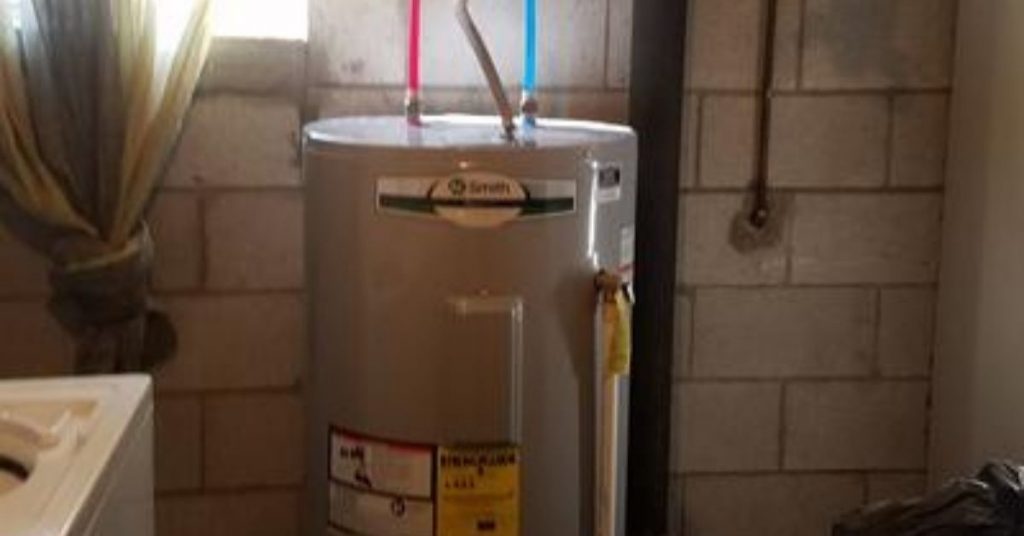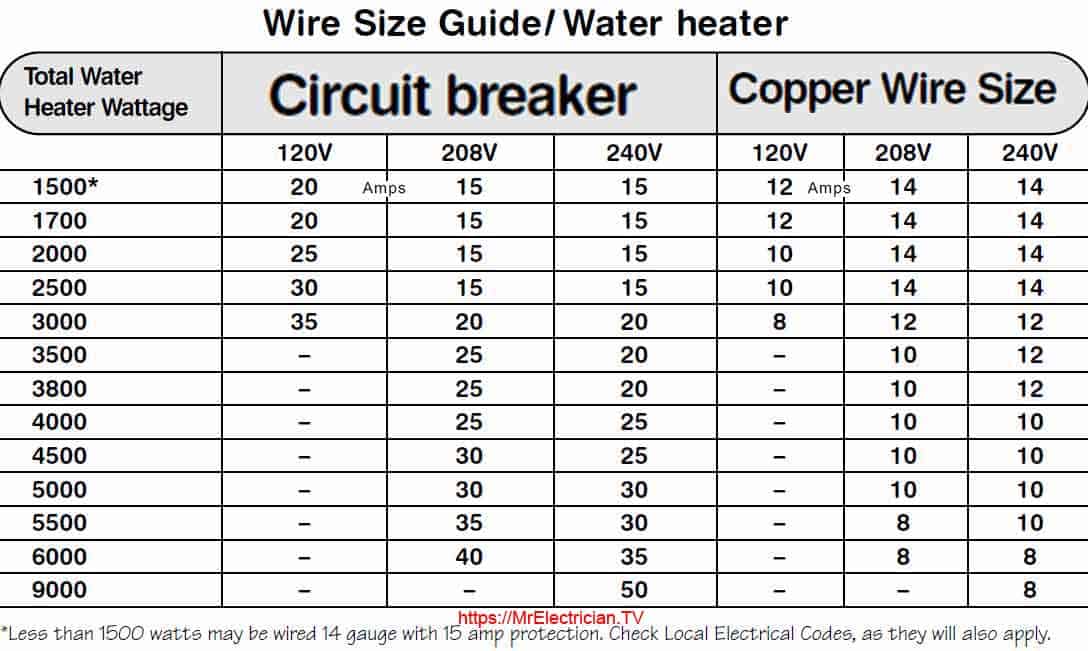Are you planning to install a water heater in your home? One of the most important things you need to consider is the breaker size of the water heater. If you install the wrong breaker size, you may end up dealing with several unpleasant issues. In this article, we will discuss how to determine the correct breaker size for your water heater and avoid such problems.
Ensuring that your water heater has the right breaker size is essential for safety and performance. However, determining the correct breaker size can be confusing and frustrating, especially if you are not a handyman or an electrician. You may have several questions regarding this issue, such as what breaker size should you choose, what common mistakes to avoid when selecting a breaker size, and so on.
How to Determine Breaker Size for Water Heater
To determine the appropriate breaker size for your water heater, you need to consider two essential factors: the water heater's wattage and the minimum wire size. Breaker size is calculated based on the wattage of a water heater. Generally, a 240-volt water heater requires a double-pole 30-amp breaker, and a 120-volt water heater requires a single-pole 20-amp breaker.
Summary of Main Points
In summary, determining the correct breaker size is crucial for the safe installation and operation of your water heater. To ensure that you choose the right size, you must consider the wattage of the water heater and minimum wire size. Remember that 240-volt water heaters require a double-pole 30-amp breaker, while 120-volt water heaters require a single-pole 20-amp breaker.
How to Determine Breaker Size for Water Heater in Detail
When choosing the correct breaker size, you need to know the maximum wattage of the water heater. You can find this information on the manufacturer's label attached to the heater. After determining the maximum wattage, you can use a simple formula to calculate the required breaker size. Divide the maximum wattage by the voltage of the water heater. The result is then multiplied by 1.25, which gives you the minimum amperage required. For example, suppose you have a 240-volt water heater with a maximum wattage of 6000 watts. In that case, the required minimum amperage will be 31.25 amps [(6000 watts / 240 volts) x 1.25 = 31.25 amps].
Besides wattage, you should also consider the minimum wire size. The minimum wire size depends on the amperage rating of the breaker. In general, a 30-amp breaker requires a 10-gauge wire, while a 20-amp breaker needs a 12-gauge wire. The appropriate wire size ensures that the circuit can handle the heater's amperage while preventing possible electrical hazards such as fire and overheating.
Common Mistakes to Avoid
The most common mistake people make when determining the breaker size for a water heater is choosing an undersized breaker. Using an undersized breaker can cause frequent tripping and damages to your water heater. On the other hand, using an oversized breaker may cause overheating and short circuits, which increases the risk of electrical hazards. Therefore, it's essential to carefully select the correct breaker size.
FAQs
Q1. Can I choose a larger breaker size than recommended for my water heater?
No, you should never choose a larger breaker size than recommended for your water heater. An oversized breaker can cause overheating and short circuits, which pose electrical hazards. Moreover, most homeowners insurance policies don't cover damages caused by breaker size mismatch.
Q2. Can I use a higher amperage wire than the minimum required for a breaker?
Yes, you can use higher amperage wire than the minimum required for a breaker. However, it's essential to ensure that the amperage rating of the wire exceeds the amperage rating of the breaker. Using a lower amperage wire can lead to overheating and fire hazards.
Q3. Can a water heater overload the circuit if the breaker is the right size?
Yes, a water heater can still overload the circuit even if the breaker is the right size. This occurs when the circuit is overloaded with other appliances, such as refrigerators or air conditioners, sharing the same circuit.
Q4. How often should I replace the breaker for my water heater?
There isn't a specific timeline for replacing the breaker of your water heater. However, if you notice any signs of damage, such as frayed wires or discoloration, you should consider a replacement immediately. You should also replace the breaker if it trips frequently, making it challenging to operate your water heater.
Conclusion of How to Determine Breaker Size for Water Heater
In conclusion, choosing the correct breaker size for your water heater is critical for safe and efficient operation. Remember, the appropriate breaker size depends on the wattage of the water heater and minimum wire size. By ensuring that you choose the right breaker size, you can avoid possible electrical hazards and keep your water heater working correctly.
Gallery
How To Find The Proper Size Of Circuit Breaker? CB Calculator | Circuit

Photo Credit by: bing.com / breaker gauge heater calculate electricaltechnology wattage thermostat wiring
What Size Tankless Water Heater Do I Need? [5 Factors Explained] 🔥
![What Size Tankless Water Heater Do I Need? [5 Factors Explained] 🔥](https://tanklesswaterheaterexpress.com/wp-content/uploads/2019/10/residential-water-heater-sizes.png)
Photo Credit by: bing.com /
The Size Of Water Heater To Buy - Things To Consider - Plumbing Sniper

Photo Credit by: bing.com / determine
Water Heater Wire Circuit Breaker Size

Photo Credit by: bing.com / thhn sizes calculation conduit ampacity heaters celica correct depicting wattages mrelectrician
What Size Breaker Do I Need For A Water Heater? - USAwaterquality

Photo Credit by: bing.com / tankless breaker indoor narah heaters conklin houseaffection klaffs